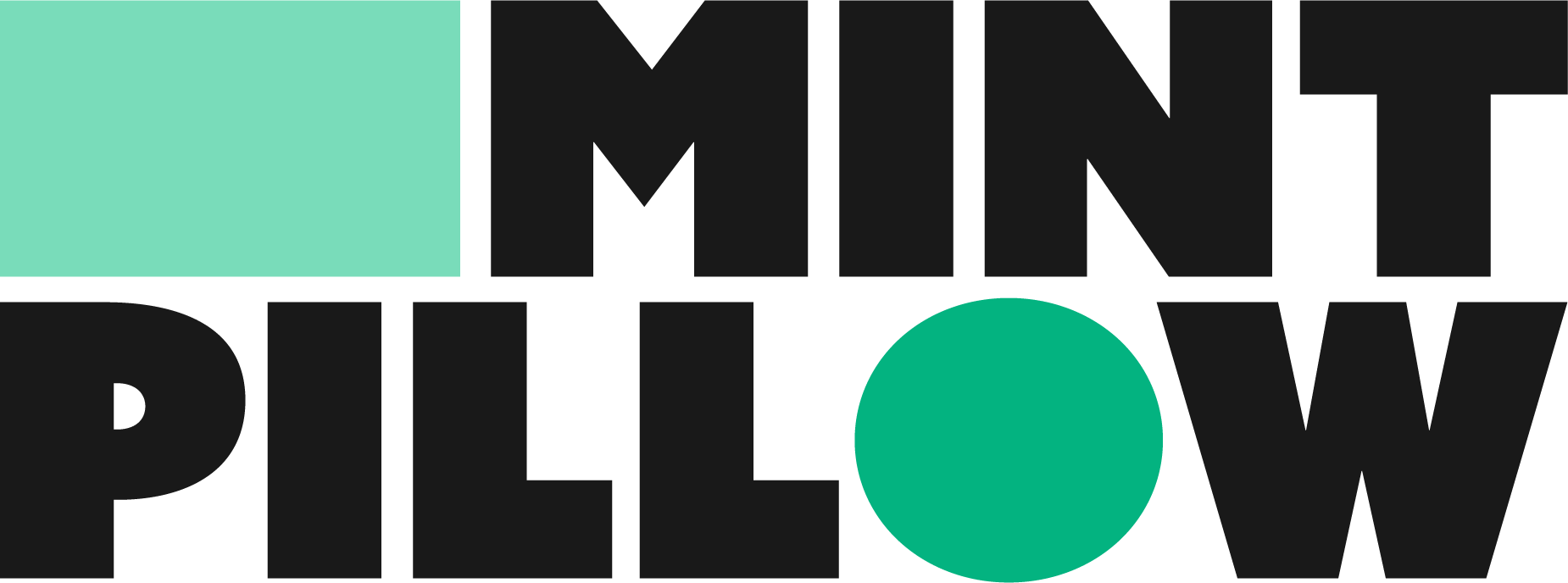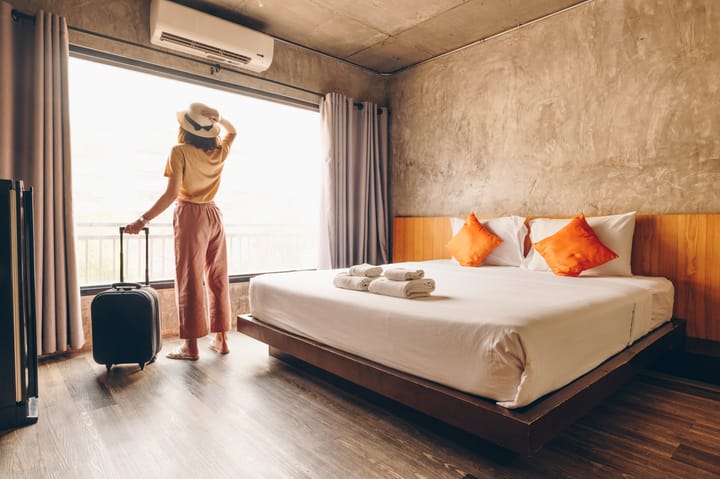Control freaks, rejoice
Stop outsourcing your power. Start rewriting your story.

This week, we’re talking control—who’s got it, who’s lost it and what it’s really costing you when you hand over your bookings and brand story to someone else.
Meanwhile, winter’s creeping in, and with it, a whole new set of worries for female colleagues (and what you can do to mitigate them).
Rounding things out: a boutique hotel that's cracked the code on the design approach that has locals claiming it as their own.
It’s a little strategy, a little empathy and a dash of design envy—a true Mint Pillow trifecta!
But first: see which U.S. destinations made National Geographic's "Best of the World" list.
P.S. In your inbox later this week: A Q&A with pioneering marketer Jody Merl, who shares how a hotel’s unsold rooms can become a powerful marketing tool and why smarter (not higher) spending drives results.

Enough already. More than 30 hotel groups just reminded Congress that the government shutdown isn’t exactly great for business.
Now serving tea and crumpets. Looks like Davidson Hospitality Group just landed its first international asset. The American management firm makes its U.K. debut at Ragdale Hall.
It’s personal (or it should be). Booking online may feel tailored, but if a guest's arrival makes them feel like they’re walking into a ‘one-size-fits-all’ experience, you've got some work to do. Here, 14 hospitality experts offer insightful ways to close the personalization gap.
Lead from the front. You know that moment when you realize you’ve been running the show but not calling the shots? The AHLA Foundation’s BUILD and ELEVATE programs are designed to help women in hospitality flip that script with coaching, confidence and a clear path to leadership.
New York has all the fun. You know the compression from this Citi Field event is going to be absurd. BagelFest weekend (Nov. 16) is the one time NYC hotels can justify surge pricing for what's essentially a bread convention.


The hyper-local playbook
Charleston's new 25-room boutique hotel is a perfect case study in how to actually be local, not just "locally inspired." Hotel Richemont didn't just hang a few generic prints and call it a day; they hired Charleston-based interior designer Betsy Berry of B. Berry Interiors who then commissioned local artists for custom murals, mirrors and room art. The strategy makes the property a genuine part of the neighborhood, not just a building within it.
Why it matters: Having the freedom to partner with creators in your own backyard is a perk and privilege of independents. This approach embeds Hotel Richemont directly into the local creative community, instantly giving the property a level of credibility and a unique story. Guests feel like they’re getting an exclusive, curated experience and the local community sees the hotel as a patron, not an invader. And forget a huge marketing spend—those one-of-a-kind art pieces are the marketing. Trading square footage for genuine, memorable character? That's how indies win the authenticity game. (Holy City Sinner)

Let’s make a deal
The path to ownership is shifting from who has the most capital to who has the strongest operational plan. While institutional buyers focus on traditional financing, savvy independents are finding opportunities in creative deal structures. Your next acquisition target might just be your most valuable lending partner.
Why it matters: Your proven ability to drive profitability is the key to unlocking the deal, not the size of your bank account. Pierre Marechal, VP strategic advisory & asset management of JLL, offers seven pathways into hotel ownership that rely more on creativity, deal structure and partnerships than deep pockets. For example, the OpCo/PropCo model is the most viable strategy for an experienced hotelier to gain an equity stake without generational wealth, allowing you to acquire the cash-flowing business itself and allowing a separate property company to handle the passive real estate asset.
Ingenuity is the key to leveraging your hard-won skills into a real ownership stake and how you can start building your own portfolio.(HOTELS)

"And just like that, AI became the new OTA. Hotels spent 20 years fighting for rate parity, now they’ll need to fight for prompt parity. Whoever owns the traveler’s question owns the booking. OTAs know it—hoteliers still don’t." —Louis-Hippolyte Bouchayer, Head of Lodging Strategy & Supplier Management, SAP Concur
The OTAs are getting cozy with ChatGPT. Independent hotels? Not exactly invited to the party.
AI is rewriting the rules of discovery faster than any OTA update ever could. If independents aren’t visible within these new conversational platforms, they risk losing not just guest access, but the data and insights that power smarter operations, warns hotel marketing consultant Christine Malfair in a recent LinkedIn post.
SAP Concur’s Louis-Hippolyte Bouchayer adds that the industry’s long-running battle over rate parity is giving way to prompt parity—a reminder that in the AI era, visibility begins with the question itself.
What looks like an opportunity to streamline bookings may actually accelerate dependence on intermediaries. Hotels that move now—by refining content, strengthening direct channels, and building smarter partnerships—can turn this inflection point into an advantage.
Why it matters: When Expedia and Booking.com surface first in AI-generated recommendations, independents risk becoming invisible before travelers even start searching. This isn’t just another twist in tech adoption—it’s a gatekeeper moment for hospitality. (LinkedIn)

Hello darkness, my old friend
Staff safety isn't exactly a typical morning meeting topic, but there's a compelling case for why it should be. The dark winter months bring a whole new set of worries for female colleagues that are surprisingly simple to fix.
Why it matters: As the days become shorter, it's worth asking if your staff is really ready for the dark. A "gender impact assessment"—in other words, a common-sense safety check—ensures your team feels secure, from the banquet rooms to the parking lot. Taking basic steps—like making sure no one is working totally alone on a huge floor, reviewing closing procedures and fixing that sketchy lighting by the staff exit—are compassionate gestures. It’s about more than just compliance; it's about respect and retention, and one way to keep the amazing people you've worked so hard to find. (HospitalityNet)
Thanks for reading today's edition! You can reach the newsletter team at newsletter@mintpillow.co. We enjoy hearing from you.
Interested in advertising? Email us at newslettersales@mvfglobal.com
Mint Pillow is curated and written by Jennifer Glatt and edited by Lesley McKenzie.




